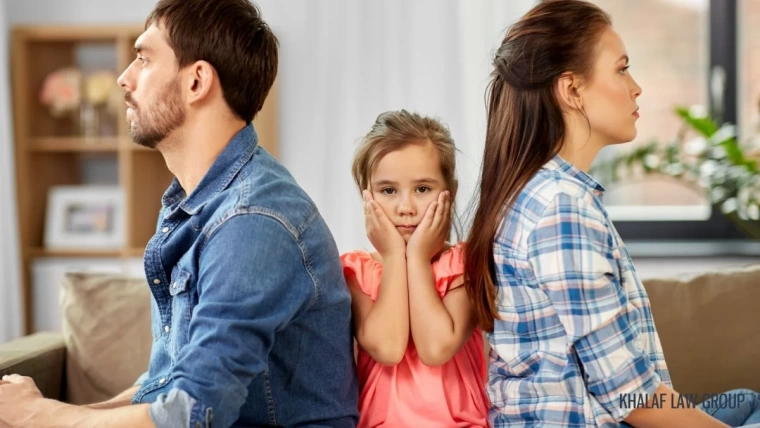Many family law matters involve children, their needs, and their safety. Because of this, sometimes, a child will need to testify or address the court about certain issues. However, some parents may not want their children to be involved in the court process, or they are unsure if their kids are the proper age to participate.
Here’s everything you might need to know about your children being involved in family law issues and whether or not they have a voice in court.
What Is the Legal Age a Child Can Address the Court in California?
According to the California Family Code, Section 3042, children were only able to testify and address the court if they were of sufficient age and mental capacity. For most circumstances, such as voicing their preferences for child custody, a child was required to be at least the age of 14.
However, California recently decided to amend this section of the code, stating that there is now no mandate or rule that requires or prohibits children from participating in court. Because of this, the decision of whether a child may be able to directly testify or address the court will ultimately be left up to the judge of your case. If the judge believes that addressing the court is not in the best interest of the child, I.e., it will negatively impact them in some way; then they most likely will not allow them to participate in court proceedings. If the judge believes that the child addressing the court could be beneficial to them or their circumstances, they’ll most likely allow them regardless of their age.
How Does California Determine if Addressing the Court Is in the “Best Interest” of the Child?
Looking at the California Rules of Court, Rule 5.250, the judge will take the following aspects into consideration when deciding if a child participating in court is best for them:
- If the child is old enough to have reasonable capacity regarding decision-making on important matters such as custody
- If the child is old enough to understand the nature and importance of their testimony and the case
- Whether or not there is evidence that participating in court will negatively impact the child or be beneficial to them
- Whether or not the subject of the content the child wants to discuss is relevant to the current case and court proceedings
- Whether or not information that was going to be shared has already been collected by an interviewer or third-party professional and does not need to be repeated
What Kinds of Factors Can Affect a Child’s Eligibility to Address the Court?
The court’s responsibility is to keep the best interests of the children as the priority of any family law case, and they take a multitude of different factors into consideration before deciding whether or not a child should be allowed to testify in court. Some of the aspects a judge will look at include:
- The age of the child
- Whether or not the child is of sufficient age to fully understand the importance of addressing the court and their case
- The mental capacity of the child
- Whether or not participating in court could be emotionally traumatic or negatively impact the child.
- Whether or not participating in court could benefit the child or their family.
- Whether or not the child is comfortable participating in court or if they would prefer another method, such as confiding with a professional one-on-one outside of court
- Whether or not the testimony of the child is needed for the case proceedings
FAQs
Q: What If My Child Doesn’t Want to Address the Court, but They Want Their Voice Heard?
A: If your child is uncomfortable with the idea of going to court, there is no legal statute that requires them to do so. If you want to make sure that their voice on certain matters is still heard in court, though, it’s recommended that you find an attorney who can help you properly share their opinions.
Q: How Old Does a Child Need to Be in California to Decide Which Parent to Live With?
A: According to California law, a child cannot choose what parent they live with until they reach the age of 18. Children under the age of 18 are allowed to voice their preferences for child custody decisions in court and can also have their parents petition for modifications to previous orders if they are uncomfortable.
Q: Can a Child’s Preference Affect a Child Custody Decision in California?
A: Yes. If a child voices their preference for whom they would like to live with, whether in court or with a third-party professional, the judge will take their statement into consideration when making their final decision on custody.
Q: What Does It Mean If a Child Is Emancipated?
A: Emancipation is a process that allows eligible individuals under the age of 18 to be seen as legal adults. If a child is emancipated, they are legally considered an adult and do not have to follow court orders like child custody terms anymore. This means they are allowed to move out and live on their own without having to follow the divorce terms of their parents.
Q: Can a Child Change a Joint Custody Arrangement in California?
A: If one of the parents has already petitioned to modify the custody order, then a child is allowed to voice their concerns and preferences about the current situation. A child is not allowed to petition for a modification, however, meaning they can only voice their preferences if a parent does so first.
Child Custody Lawyers in Pasadena, CA
Divorces come along with a variety of issues, many of which take time to resolve in court. Because of this, having an experienced family law attorney on your side is critical to help you through your case. At Khalaf Law Group, our team has been serving California residents for over a decade and is dedicated to providing expert, compassionate care for each of our clients. If you’re dealing with a difficult divorce or a highly disputed child custody battle, don’t delay contacting our team to see how we may be able to help today.



